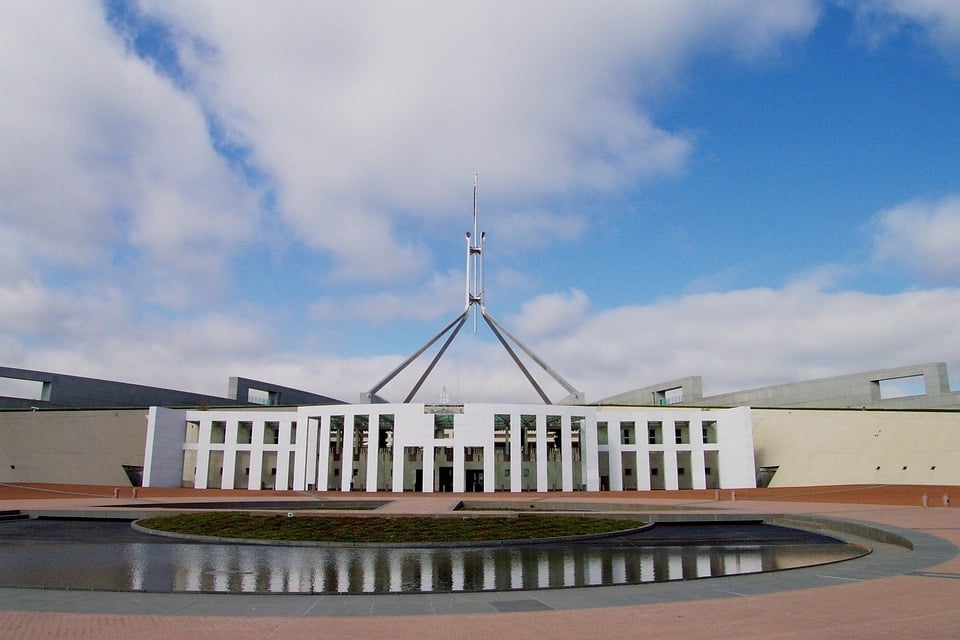
Celebrating National Biosecurity Week 2025
Australia’s biosecurity system is one of the strongest in the world-and for good reason. It protects the food we eat, the natural places we love, our health, and the jobs and communities that depend on our agriculture and environment.
This National Biosecurity Week from 25-31 August, we are celebrating the people, partnerships and innovations that protect our way of life.
From the paddock to the plate, biosecurity touches every part of our economy and community.
A strong, modern biosecurity system is essential to our nations success. It underpins our economy by keeping trade moving, allowing our $90 billion agriculture sector to continue thriving. It ensures the food we eat is safe and of the highest-quality and preserves our unique natural environment.
Our stringent biosecurity practices are implemented globally, with regional neighbours collaborating to prevent pests and diseases from entering their countries and ours. This enables us to trade confidently with the world, maintaining our reputation as a clean and reliable producer.
Everyone has a role to play in protecting Australia against harmful pests and diseases.
Biosecurity isn’t just about border checks-it’s a shared responsibility involving individuals, businesses, and government. Whether you’re a farmer, a traveller, a scientist, or interested in protecting your way of life, everyone has a role to play.
We’re working alongside Plant Health Australia, Animal Health Australia, governments, industries and communities to deliver vital information on how we can all help protect what matters.
Supporting Indigenous Ranger programs: Indigenous Rangers are vital partners on the biosecurity frontlines. These dedicated teams safeguard extensive stretches of remote coastline by retrieving ghost nets, cleaning up marine debris, and monitoring plants and animals for high-risk threats. Their work not only protects our environment and agriculture but also preserves cultural heritage and supports sustainable futures.
Through our on Country program: First Nations Biosecurity Officers receive employment and career opportunities with the department, through our innovative, co-designed, pre-employment program, that is integrated with an affirmative recruitment process and tailored to First Nations people.
Investing in smarter technology: We are investing in advanced technology to detect threats more quickly and accurately. Our new imaging tools are revolutionising biosecurity. Diagnostic experts now use ultra high-resolution cameras and lenses to capture true-colour images of even the tiniest insects.
Global innovation challenge: the department, in partnership with the CSIRO and Hort Innovation Australia launched a global innovation challenge – are inviting innovators, problem solvers, and innovative organisations to provide advanced technological solutions for the surveillance of mites and monitoring of Varroa mites. This collaborative approach paves the way for invigorating how the department identifies technologies to tackle some of our important and complex biosecurity risks. The challenge provided an exciting opportunity to identify innovative and emerging technologies that could be trialled to potentially transform how Australia tackles honeybee mites, equipping the beekeeping industry with tools and knowledge to protect our vital pollinators and industry viability.
Community awareness: We are increasing community awareness to help Australians understand how they can contribute to biosecurity. This includes educating the public on the importance of reporting unusual pests, respecting biosecurity measures, and checking regulations before ordering goods from overseas.
Expanded offshore assurance programs: We have expanded our offshore assurance programs to stop pests before they reach our shores. By working with international partners, we are taking proactive measures to protect Australia’s biosecurity.
When travelling:
Before travelling to Australia, make sure you know what you can bring. Declare any high-risk goods, including food, plant material, and animal products. Not sure about something? Just declare it. You won’t be penalised for being honest, even if the item isn’t allowed. Check before you travel.
Before you buy online from overseas, check if an item is allowed into Australia. Be cautious with food, seeds, plant, and animal products – as these can harbour dangerous pests and diseases. Check before you buy.
Think you’ve seen something unusual in your backyard, on a farm, or out in the bush? Reporting pests, weeds, or diseases helps protect our environment, animals, and crops from serious outbreaks.
Save these hotlines now – just in case:
Even small signs can signal something big.
During National Biosecurity Week, we are highlighting the people, technology, and programs that drive our biosecurity system – and how you can play a role too. Whether it’s reporting unusual pests, sick plants or animals, checking regulations before ordering goods from overseas, respecting biosecurity measures at farms, or simply checking what you pack before traveling to Australia, every action counts. Together, we can help keep Australia safe, sustainable, and strong.
Australia is worth protecting.
If you are in Darwin head to the waterfront for “BioGlow” the Biosecurity Lightshow, being held on Saturday 30 August. The light and sound show is being held to increase community awareness about Northern Australian Biosecurity pests and diseases, and the importance of caring for Country.
https://www.agriculture.gov.au/about/news/national-biosecurity-week-2025


